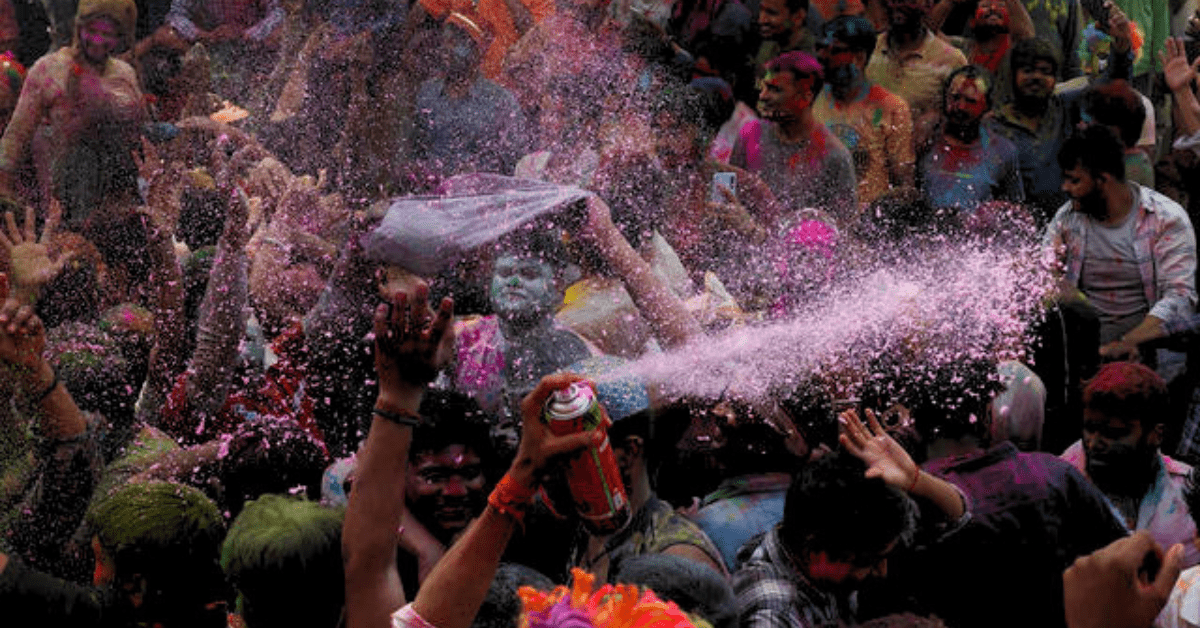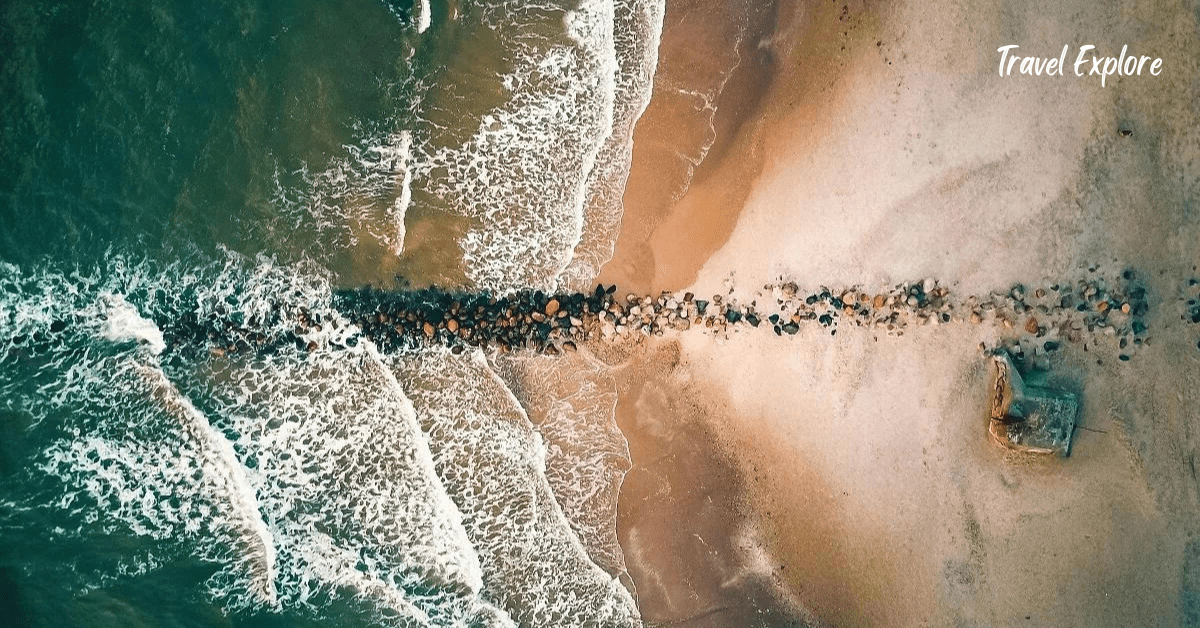How to Stay Healthy While Traveling?

Traveling can be an enriching experience, offering opportunities for exploration, adventure, and new experiences. However, it can also pose challenges to maintaining a healthy lifestyle. From long hours in transit to exposure to new environments and cuisines, travelers often find themselves facing obstacles when it comes to staying healthy on the road.
Pre-Trip Preparations

Before you even set foot on your journey, taking the time to plan and prepare can make a significant difference in maintaining your health while traveling.
Research Your Destination
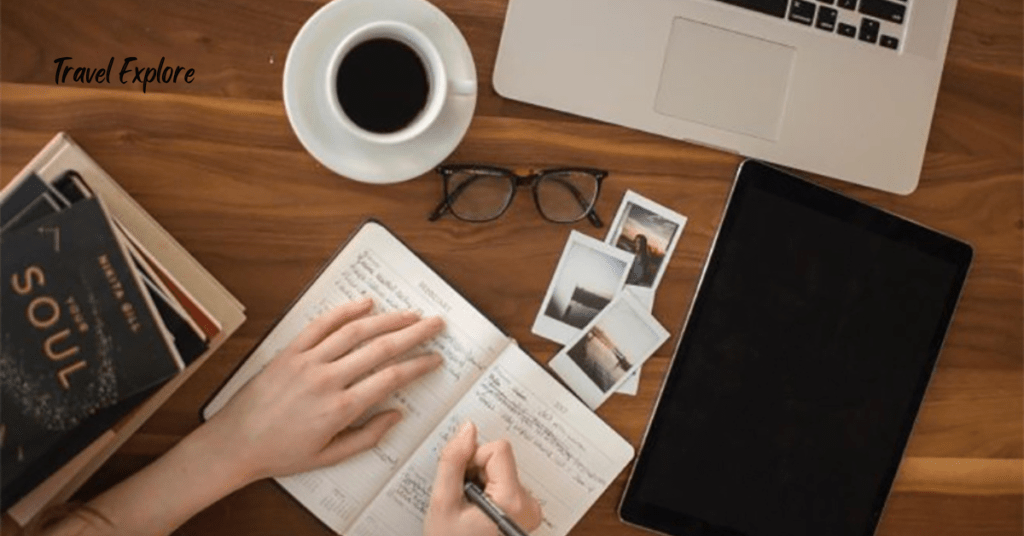
Researching your destination is a crucial step in preparing for any trip. It involves gathering information about the place you’re visiting to ensure a smooth and enjoyable experience. Firstly, familiarize yourself with the culture, customs, and local laws of the destination.
This includes understanding dress codes, social norms, and any taboos to avoid unintentional offense. Next, research the weather conditions and pack accordingly. Knowing the climate helps you pack appropriate clothing and gear. Additionally, explore the local cuisine and dining customs.
Being aware of what to expect in terms of food can enhance your culinary experiences while traveling. Moreover, research transportation options and routes within the destination. Whether it’s public transport, rental cars, or ride-sharing services, knowing your transportation choices can save time and money.
Furthermore, research popular attractions, activities, and events happening during your visit. This allows you to plan your itinerary and make the most of your time.
Finally, look into health and safety considerations such as vaccinations, medical facilities, and emergency contacts. Researching your destination thoroughly ensures you’re well-prepared for a rewarding and hassle-free journey.
Visit Your Doctor
Visiting your doctor for pre-trip preparations is an essential step in ensuring a safe and healthy travel experience. Before embarking on any journey, it’s wise to consult with your healthcare provider to address any specific health concerns and to make sure you’re adequately prepared for the trip.
During this visit, your doctor will typically review your medical history, current health status, and any pre-existing conditions you may have. They’ll also assess the destination you’re traveling to and any potential health risks associated with it, such as required vaccinations, endemic diseases, or altitude sickness.
Your doctor may recommend certain vaccinations or preventive medications based on your destination and individual health needs. For example, if you’re traveling to a region where diseases like malaria or yellow fever are prevalent, you may need to get vaccinated or take prophylactic medications.
Additionally, they may advise on how to prevent common travel-related illnesses, such as traveler’s diarrhea, by providing guidance on food and water safety measures.
Moreover, if you have any chronic medical conditions, your doctor can help you plan for managing them during your trip. They may adjust your medication dosage or provide additional prescriptions to carry with you.
If you require specialized medical equipment or supplies, your doctor can advise on how to arrange for them while traveling.
Furthermore, this visit is an opportunity to discuss general travel health tips, such as maintaining good hygiene practices, staying hydrated, and managing jet lag. Your doctor can also address any concerns you may have about traveling with specific health conditions or disabilities.
Nutrition and Hydration

Maintaining a balanced diet while traveling can be challenging, especially when faced with unfamiliar foods and dining options. However, making mindful choices about what you eat and drink is crucial for your overall well-being.
Choose Healthy Options
When traveling, maintaining proper nutrition and hydration is crucial for your overall well-being and energy levels. Choosing healthy options ensures you stay energized and avoid potential health issues that can arise from poor diet and dehydration.
Opt for nutrient-dense foods like fruits, vegetables, whole grains, and lean proteins. These provide essential vitamins, minerals, and antioxidants to support your immune system and keep you feeling full longer.
Pack portable snacks like nuts, seeds, and dried fruits to have on hand when healthy options aren’t readily available. Additionally, stay hydrated by drinking plenty of water throughout your journey.
Carry a refillable water bottle and aim to drink water regularly, especially in dry or hot climates. Avoid sugary drinks and excessive caffeine, as they can lead to dehydration. If you’re traveling by plane, the dry air in cabins can further dehydrate you, so increase your water intake accordingly.
Planning ahead and making conscious choices about what you eat and drink will ensure you feel your best during your travels.
Stay Hydrated
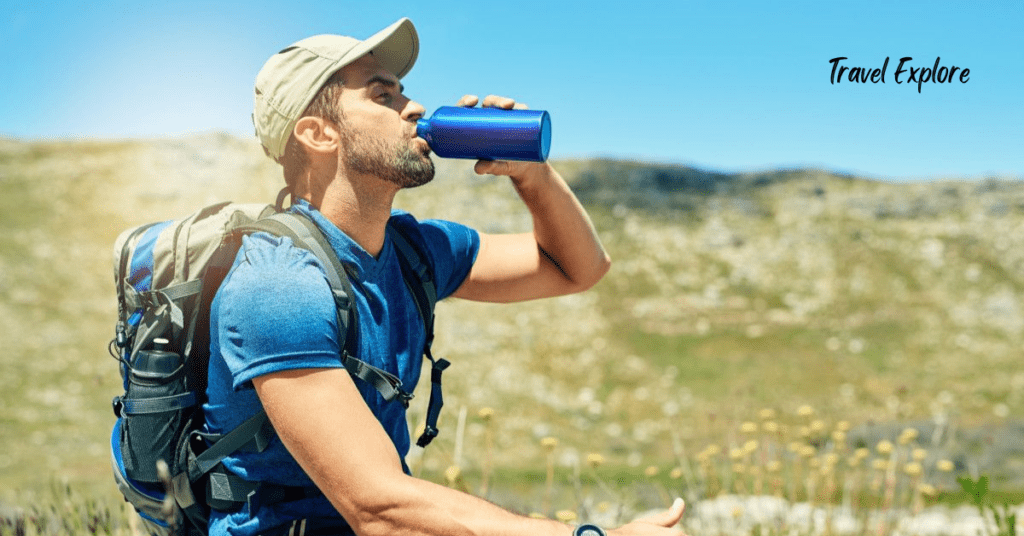
Stay hydrated” is a fundamental mantra for maintaining good health, especially while traveling. Proper hydration is crucial for numerous bodily functions, including digestion, circulation, temperature regulation, and cognitive performance.
When traveling, whether by plane, train, car, or any other mode of transport, it’s easy to become dehydrated due to factors like dry air in airplanes, limited access to water, and changes in routine.
To ensure optimal hydration while on the go, it’s essential to plan ahead. Carry a refillable water bottle with you and make a habit of refilling it whenever possible. Opt for water over sugary or caffeinated drinks, as these can actually contribute to dehydration. If you’re flying, drink water regularly throughout the flight to counteract the dry cabin air.
Additionally, consider hydrating foods like fruits and vegetables, which have high water content. Snack on items such as cucumbers, watermelon, oranges, and celery to boost your hydration levels while providing essential vitamins and minerals.
Be mindful of alcohol and caffeine intake, as both can increase dehydration. If you choose to indulge, make sure to balance with extra water intake.
Remember, the sensation of thirst isn’t always a reliable indicator of hydration, especially in situations like air travel where the air is dry. It’s better to sip water consistently throughout the day rather than waiting until you feel thirsty.
Physical Activity
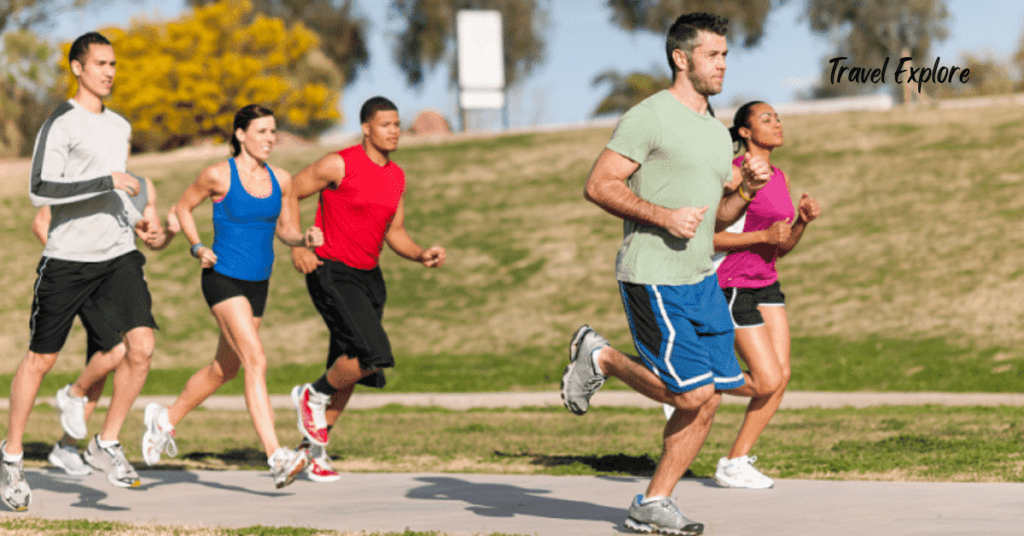
Regular physical activity is essential for maintaining your health and well-being, even when you’re away from home. Incorporating exercise into your travel itinerary can help you stay energized, reduce stress, and counteract the sedentary nature of many travel activities.
Explore on Foot or by Bike
Exploring on foot or by bike while traveling offers a rich and immersive experience that allows you to connect with your surroundings on a deeper level. When you choose to explore by foot, you engage all your senses, absorbing the sights, sounds, and smells of your environment.
You can wander through narrow streets, stumble upon hidden gems, and interact with locals along the way. Walking also gives you the flexibility to pause and appreciate the details, whether it’s admiring the architecture of a historic building or stopping at a local cafe to savor a freshly brewed cup of coffee.
Similarly, biking opens up a world of possibilities for exploration. With the wind in your hair and the freedom to cover more ground than on foot, you can venture farther into the landscape while still feeling intimately connected to it.
Biking allows you to discover scenic routes, explore parks and trails, and experience the thrill of discovery as you pedal through charming neighborhoods and countryside vistas. Plus, it’s an excellent way to stay active and healthy while traveling, providing a cardiovascular workout and strengthening your muscles as you ride.
Both walking and biking offer eco-friendly alternatives to traditional modes of transportation, reducing your carbon footprint while giving you a sense of accomplishment and adventure.
Whether you’re wandering the streets of a bustling city, exploring a picturesque village, or navigating nature trails, embracing these modes of exploration enhances your travel experience by fostering a deeper connection with the places you visit and the people you encounter along the way.
So, lace up your walking shoes or hop on your bike, and embark on a journey of discovery and physical activity that will leave you with memories to cherish for a lifetime.
Embrace Outdoor Activities
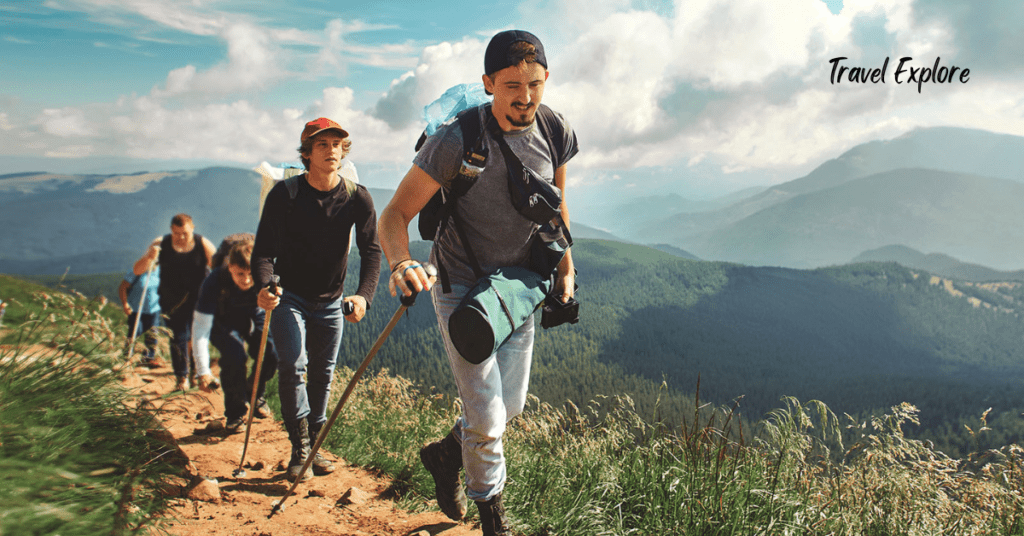
Embracing outdoor activities for physical activity while traveling is an excellent way to not only stay fit but also to immerse oneself in the natural beauty and culture of a destination. Whether it’s hiking through scenic trails, cycling along picturesque routes, or simply taking a brisk walk through a charming town, outdoor activities offer a myriad of benefits.
Not only do they provide a great cardiovascular workout, but they also allow travelers to explore their surroundings in a more intimate and authentic way. Additionally, outdoor activities can be tailored to suit various fitness levels and interests, making them accessible to everyone.
Engaging in physical activity outdoors also promotes mental well-being, as it allows travelers to disconnect from the stress of daily life and connect with nature. Moreover, it presents opportunities for social interaction, whether it’s joining a group hike or striking up conversations with locals along the way.
Overall, embracing outdoor activities while traveling is a holistic approach to staying active, healthy, and happy while experiencing the wonders of the world.
Rest and Relaxation

Traveling, while exciting, can also be stressful at times, leading to fatigue and burnout if not managed properly. Prioritizing rest and relaxation is essential for maintaining your overall well-being during your journey.
Get Quality Sleep
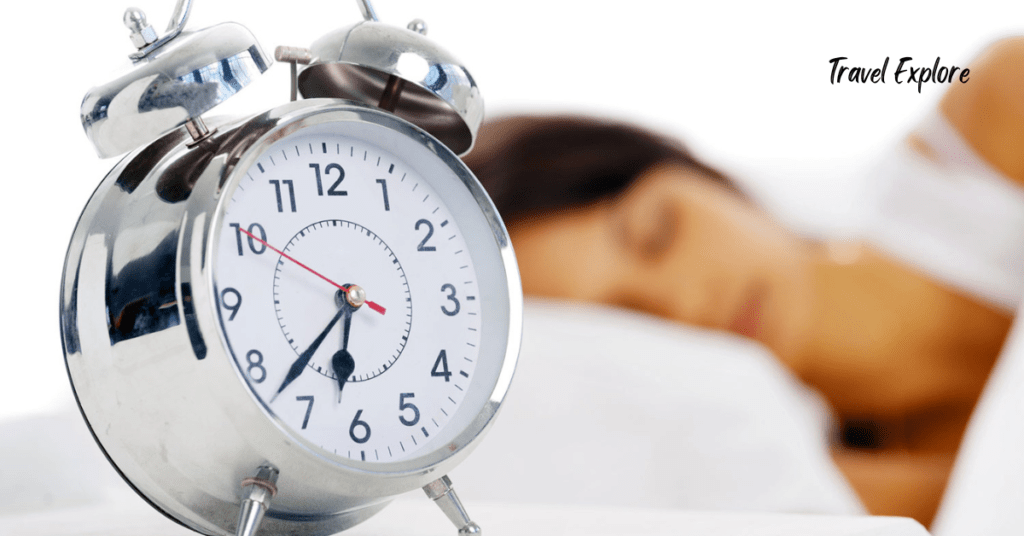
Getting quality sleep while traveling is crucial for rest and relaxation, ensuring you’re ready to enjoy your trip to the fullest. First, establish a consistent sleep schedule as much as possible, even if it means adjusting to a new time zone.
This helps regulate your body’s internal clock and promotes better sleep. Choose accommodations that prioritize comfort and quietness, whether it’s a hotel room away from noisy streets or earplugs and an eye mask for a flight.
Creating a relaxing bedtime routine can signal to your body that it’s time to wind down. This might include a warm shower, reading a book, or practicing relaxation techniques like deep breathing or meditation.
Pay attention to your sleep environment; make sure the room is dark, cool, and comfortable. Limit exposure to screens before bed as the blue light can disrupt your body’s natural sleep-wake cycle.
Additionally, be mindful of what you eat and drink, especially close to bedtime. Avoid heavy meals, caffeine, and alcohol, as they can interfere with sleep quality. Finally, consider using aids like white noise machines or soothing music to drown out unfamiliar sounds and help you drift off peacefully.
By incorporating these strategies, you can maximize the quality of your sleep while traveling, ensuring you wake up refreshed and ready for the adventures ahead.
Practice Mindfulness
Practice mindfulness for rest and relaxation while traveling involves being fully present and engaged in the moment, allowing yourself to let go of stress and worries. When traveling, especially in unfamiliar places, it’s easy to get caught up in planning, schedules, and concerns about the future. However, by practicing mindfulness, you can cultivate a sense of calm and tranquility amidst the chaos.
Start by paying attention to your surroundings. Notice the sights, sounds, and smells around you without judgment. Whether you’re on a crowded train, in an airport terminal, or walking through a bustling city, take a moment to observe the world around you.
This can help ground you in the present moment and shift your focus away from anxious thoughts. Next, pay attention to your breath. Take slow, deep breaths, focusing on the sensation of the air entering and leaving your body.
You can do this while sitting on a plane, waiting for a bus, or even standing in line. Breathing mindfully can help calm your nervous system and reduce feelings of stress and tension.
Another way to practice mindfulness while traveling is to engage all your senses. Notice the texture of your seat, the taste of your food, the warmth of the sun on your skin. By fully experiencing each moment through your senses, you can cultivate a greater sense of appreciation and enjoyment.
Additionally, try to let go of expectations and be open to whatever experiences come your way. Traveling often involves unexpected delays, changes in plans, and unfamiliar situations. Instead of getting frustrated or upset, practice acceptance and adaptability. Trust that everything will work out in the end and focus on making the most of each moment.
Finally, take time to rest and recharge when you need it. Traveling can be exhausting, both physically and mentally, so it’s important to prioritize self-care. Whether it’s taking a nap on a long flight, enjoying a leisurely meal, or simply sitting quietly and reflecting, give yourself permission to relax and unwind.
By incorporating mindfulness into your travels, you can transform your journey into a more peaceful and fulfilling experience. Instead of rushing from one destination to the next, take the time to savor each moment and connect with the world around you. In doing so, you’ll not only feel more rested and relaxed but also more deeply enriched by your travel experiences.
Conclusion & Recap
Staying healthy while traveling requires proactive planning and mindful decision-making. By taking steps to prepare for your trip, including researching your destination, packing essential items, and getting plenty of sleep, you can set yourself up for success from the start.
Once on the road, prioritize eating well by choosing healthy options, practicing portion control, and staying hydrated. Incorporate physical activity into your traveling routine by walking, using hotel gyms, and engaging in outdoor activities.
Finally, manage stress and prioritize your mental well-being by practicing mindfulness, planning relaxation time, and staying connected with loved ones. With these strategies in mind, you can enjoy your travels to the fullest while maintaining your health and well-being.
FAQS
How can I avoid getting sick while traveling?
Practice good hygiene habits such as washing your hands frequently, using hand sanitizer, and avoiding close contact with sick individuals. Additionally, stay hydrated, get plenty of rest, and consider getting recommended vaccinations before your trip.
What should I do if I have dietary restrictions or food allergies?
Research restaurants and food options in advance, communicate your dietary needs clearly to restaurant staff, and consider bringing snacks or meal replacements to ensure you have safe and suitable options while traveling.
How can I stay active when traveling for business or with a tight schedule?
Look for opportunities to incorporate physical activity into your daily routine, such as taking the stairs instead of the elevator, going for a brisk walk during breaks, or doing bodyweight exercises in your hotel room.
What can I do to manage jet lag effectively?
Adjust your sleep schedule gradually before your trip, stay hydrated, expose yourself to natural sunlight during the day, and consider taking short naps to help alleviate fatigue.
How can I cope with travel-related stress and anxiety?
Practice relaxation techniques like deep breathing and meditation, plan downtime into your itinerary for rest and self-care, and stay connected with loved ones for emotional support.


